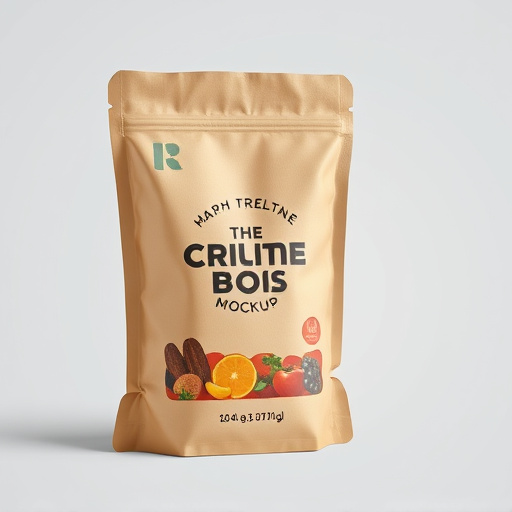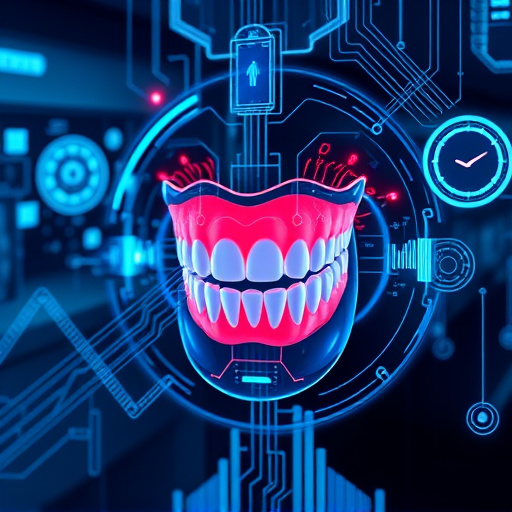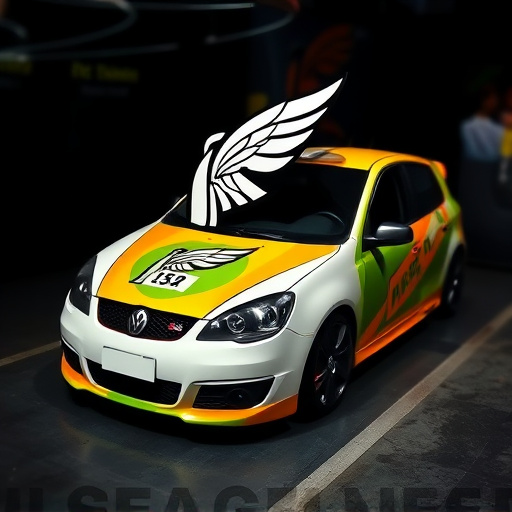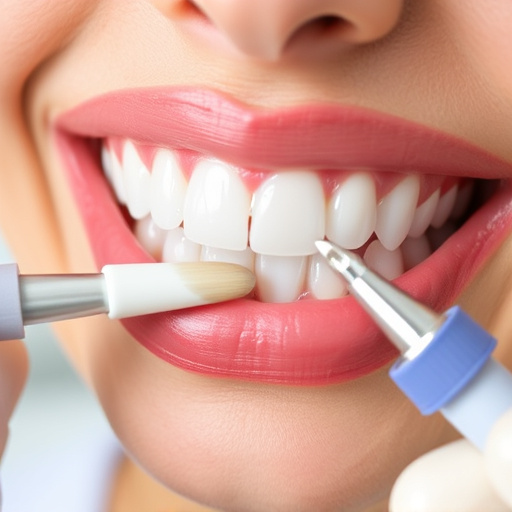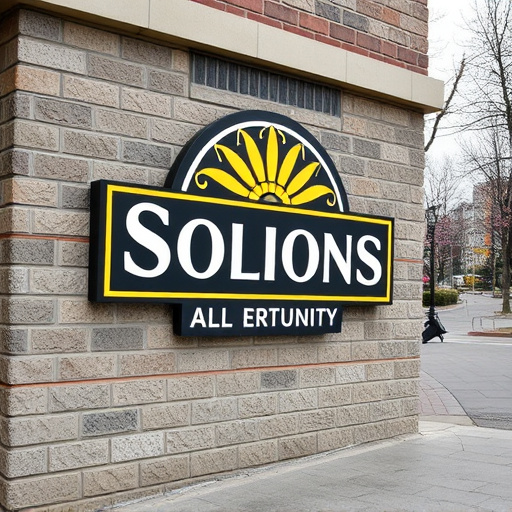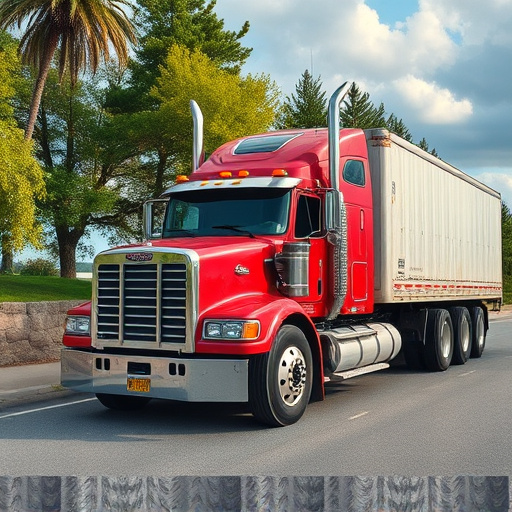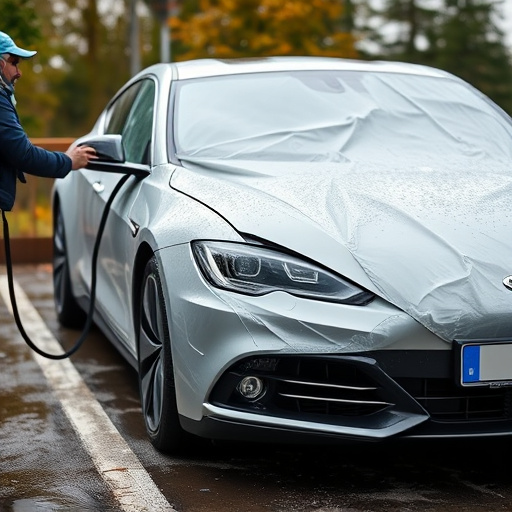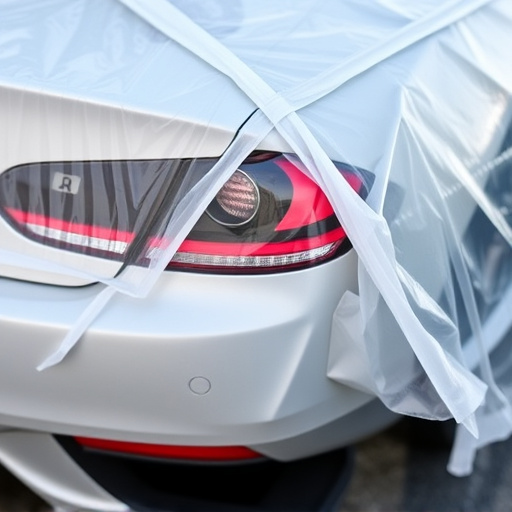Meticulous surface preparation is crucial for successful vehicle decal installation. This includes cleaning, decontaminating, and priming to ensure strong adhesion and long-term durability, protecting custom graphics from environmental damage. Address common issues like uneven or contaminated paintwork before installation to prevent premature fading or peeling.
Surface cleaning is an often-overlooked but crucial step in the vehicle decal installation process. It’s not just about aesthetics; proper preparation ensures optimal adhesion, prolonging the lifespan of your decals and guaranteeing their quality. This article delves into the significance of surface preparations, explores common issues like dirt, debris, and imperfections, and offers solutions to ensure a seamless, long-lasting decal application—a must-read for anyone undertaking vehicle decal installation.
- Understanding The Impact of Surface Preparations
- Decal Adhesion: Key to Longevity and Quality
- Common Surface Issues and How to Address Them
Understanding The Impact of Surface Preparations
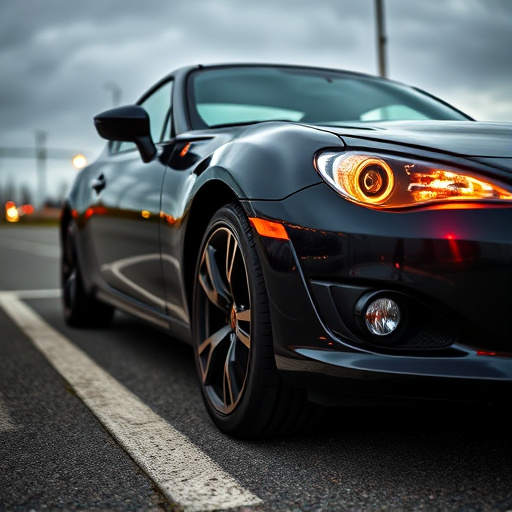
The surface on which vehicle decals are applied plays a pivotal role in their longevity and visual appeal. Adequate surface preparation is often overlooked but is crucial to ensure a successful and long-lasting decal installation. A clean, smooth, and decontaminated surface is essential for optimal adhesion. Debris, dust, and contaminants can hinder the bond between the decal and the vehicle’s paint, leading to bubbles, wrinkles, or even peeling over time. This preparation step is particularly important for outdoor applications as weather conditions like rain or direct sunlight after installation can further impact the durability of the decal.
Automotive detailing professionals emphasize the significance of surface treatments such as cleaning with specialized detergents, decontaminating with ultrasonic cleaners, and using appropriate primers to create a perfect bond. Additionally, applying UV protection coatings can shield custom graphics from the damaging effects of sunlight, extending their lifespan. These measures ensure not only a flawless installation but also preserve the vibrancy and precision of the applied graphics, enhancing the overall aesthetic appeal of the vehicle.
Decal Adhesion: Key to Longevity and Quality
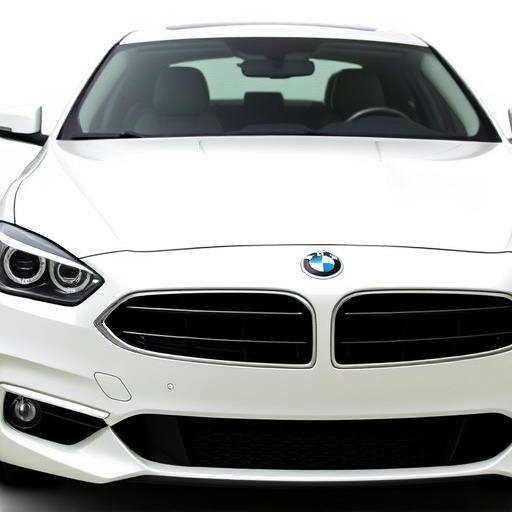
The success of any vehicle decal installation heavily relies on achieving optimal adhesion between the decal and the surface. Decal adhesive is designed to create a strong bond, ensuring the decal remains intact and vibrant over time. This longevity is crucial for maintaining the quality and appearance of custom vehicle wraps or vinyl wraps, which are popular choices in the automotive customization industry.
A professional PPF (Paint Protection Film) installation process begins with meticulous surface preparation. Clean surfaces guarantee better adhesion, preventing bubbles, creases, and other defects that can compromise the final result. A smooth, clean base ensures the decal adheres firmly, enhancing its durability against environmental factors like sun exposure, rain, and road debris. This attention to detail is what sets apart a well-executed professional PPF installation from do-it-yourself attempts, ensuring the wraps or decals remain flawless for extended periods.
Common Surface Issues and How to Address Them

Before installing vehicle decals, it’s crucial to address common surface issues that can impact adhesion and the overall durability of the decal. One of the primary concerns is an uneven or contaminated surface. Dirt, grease, wax, and other residue can hinder a strong bond between the decal and the vehicle’s paintwork. A thorough cleaning process, including washing and decontaminating, is essential to ensure optimal adhesion.
For best results in vehicle decal installation, consider implementing steps like paint correction to address minor imperfections and scratches, and applying protective coatings to create a smooth, clean base. These measures not only enhance the aesthetics of the car but also play a significant role in the longevity of the decals, ensuring they remain vibrant and intact even under various weather conditions. Car customization enthusiasts often overlook these initial steps, which can lead to premature fading or peeling of their decals.
Surface cleaning is a fundamental step in successful vehicle decal installation. By addressing preparation issues and ensuring optimal adhesion, you enhance the longevity and quality of applied decals. Understanding common problems and implementing effective solutions guarantees a professional finish that stands the test of time, making proper surface treatment an indispensable aspect of any vehicle decal project.
